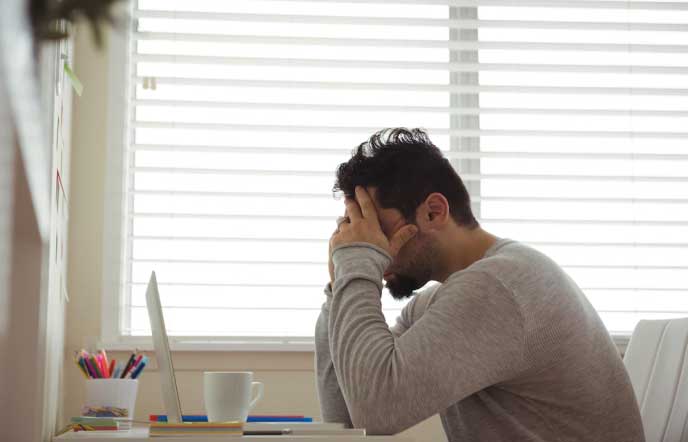Depression – Causes, Symptoms & Tips
“I’m feeling depressed today” is a common phrase, one that is being misused by many. “Depression’ is a term that we have started to use often, but what does it really mean? Feeling down, tired, or unhappy from time to time is a shared human experience. We all have emotions, and those emotions will not always be pleasant depending on what our life circumstances are at the time. However, a brief spell of unhappiness or a low mood cannot be characterized as depression.
What is Depression?
Depression is a mood condition that causes a persistent feeling of sadness and loss of interest in the activities that we usually enjoy. Depression can also be known as major depressive condition or clinical depression. Its effects can be severe, altering the way we think and perceive our surroundings. Depression can be linked to a variety of physical and emotional conditions and of course impact our daily functioning. It will cause difficulty in relationships, works, and any other responsibilities we are juggling. This condition is not something that can be ‘gotten over’ and requires professional support to guide you through journey towards recovery
Depression may occur once in a lifetime, or it may happen more than once. It is not something the individual can control on their own.

What are the Causes of Depression?
The major causes of depression include:
Imbalances in brain chemistry or hormones
Family history of depression
Traumatic or stressful events
Certain personality traits such as: low self-esteem, self-criticisms, dependency
Symptoms of Depression
Symptoms of depression must occur for most of the day nearly every day and include most of the following:
Anxiety (For more information about anxiety, see our Talk Time article about anxiety), agitation or restlessness
Sleep abnormalities, either sleeping too much (hypersomnia) or not enough (insomnia)
Lack of energy and fatigue
Increased appetite and weight gain or reduced appetite and weight loss
Slowed thinking, speaking or body movement
Feelings of guilt, fixating on past failures or self-blame
Unexplained physical complaints, such as back pain or headaches
Angry outbursts or frustration over the smallest of matters
Loss of interest in activities that were previous enjoyable such as hobbies or sports
Feelings of emptiness, hopelessness, and despair
Thoughts of death, suicide, or suicidal attempts
How to deal with Depression?
There are some ways to tackle depression, whether through consulting professionals or practicing some coping strategies:
Try to find personal meaning in something larger than yourself – consider service to others
Try to work towards a goal – find workable goals that allow you to feel a sense of accomplishment
Schedule activities or events that give you joy
Stay in the present – try your best to stay engaged in your surroundings
Make sure to eat well balanced meals (be sure not skip any!)
Reduce caffeine and alcohol intake
Get enough sleep
Exercise
Talk to someone – a close friend or family member – especially those who lift you up

When it comes to treatments of depressive conditions from trained professionals, you can expect to engage in psychotherapy. Psychotherapy involves talk therapy or counselling with a professional that can teach you how to identify and reduce symptoms of depression. Cognitive- behaviour therapy (CBT) is the most effective form of therapy when it comes to treating anxiety conditions and most popular with experienced psychotherapists.
Depression is common and nothing to be ashamed of. Many people find that they are going through a depressive episode and the most important thing would be to find a solution rather than trying to hide from the symptoms or even hide the problem altogether. We always treat our physical health with the utmost importance, and our mental health is no exception.
So, when is it time to consult a professional? Consider subscribing to Talk Time to connect with a licensed and experienced therapist if you feel that depression is interfering with work or that the depression has become too difficult to control. If you feel that you have other mental health concerns that are tied to your depression (such as anxiety – see our article on anxiety for more information), or you think your condition is interfering with your physical health then a consultation would be in your best interest. Most importantly, if you are encountering any suicidal thoughts or behaviours, seek emergency treatment immediately. At Talk Time clinicians can assess and formulate the ideal treatment for your case. This could be through psychotherapy, lifestyle, and stress management tips.
Sources:
Causes of Depression, Web MD
What are the Major Causes of Depression, Medicine Net
How to Fight Depression, Healthline.com





